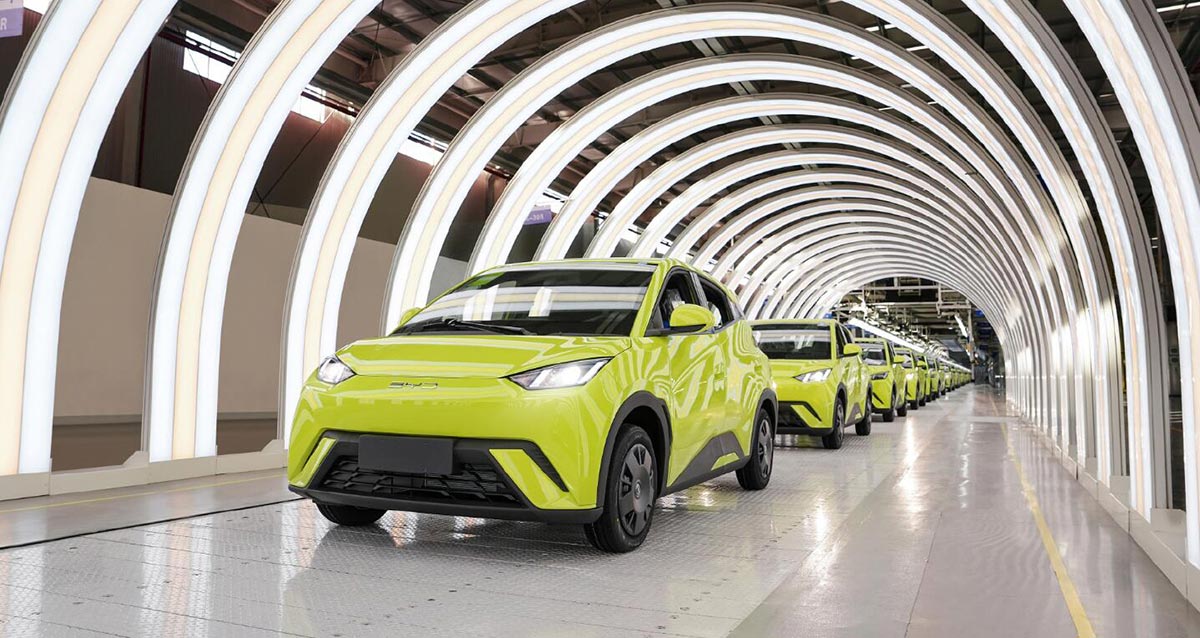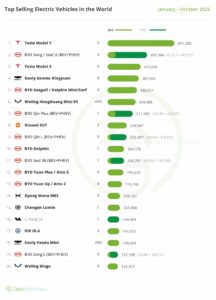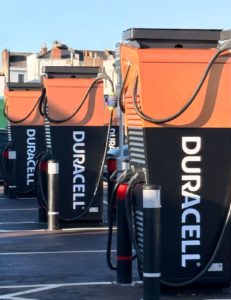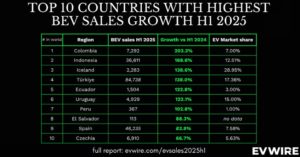Mining: securing the foundations of battery production
It all begins with the mining of essential raw materials such as lithium, nickel and cobalt — critical for producing EV batteries. While most carmakers rely on external suppliers or hedge their bets across the global commodities market, BYD has taken a more direct route.
BYD has forged long-term partnerships and acquired stakes in mining companies, securing stable supplies of lithium and other key resources. In 2022, BYD partnered with Chilean lithium giant SQM, and it has also been linked to deals in Africa to access cobalt and manganese. These strategic moves allow BYD to maintain stable pricing and uninterrupted supply, insulating it from the volatility seen across the industry in recent years.
Recently, BYD has taken a decisive step by acquiring mineral rights for two plots in Brazil’s lithium-rich Jequitinhonha Valley. The mineral rights span 852 hectares (8.5 square kilometres) in Coronel Murta, Minas Gerais, a region often referred to as Brazil’s “Lithium Valley.” Located near US-listed miner Atlas Lithium’s holdings, the area is renowned for its rich lithium deposits.
Refining: transforming raw materials into high-grade input
After raw materials are extracted, they must be processed into battery-grade chemicals. BYD has invested heavily in refining capacity through its subsidiary FinDreams, which operates several facilities dedicated to transforming lithium into lithium carbonate and lithium iron phosphate (LFP) — the core of its Blade Battery technology.
In 2023, BYD announced a joint venture with Huayou Cobalt for further refining capacity in China, aiming to boost upstream control and sustainability. Having its own refining capabilities means BYD can guarantee quality, reduce dependency on external processors, and respond faster to demand surges.
Battery production: building the Blade Battery in-house
One of BYD’s most innovative breakthroughs is its Blade Battery — a safer, longer-lasting, and cheaper alternative to conventional lithium-ion batteries. These LFP-based units are produced entirely in-house by FinDreams Battery.
The benefits are clear. First, BYD is not reliant on major battery suppliers like CATL or LG Energy Solution. Second, it can innovate faster — adjusting chemical compositions and battery formats to fit different vehicle needs. And third, it significantly reduces production costs.
The Blade Battery also enhances vehicle safety due to its resistance to thermal runaway — a key concern for EV consumers and regulators.

Chip production: BYD Semiconductor ensures digital autonomy
Semiconductors have become a bottleneck for many automakers. BYD, however, was ahead of the curve. It established BYD Semiconductor in 2004, initially focused on ICs for power electronics. Since then, it has grown into a key pillar of BYD’s strategy.
BYD Semiconductor produces chips for battery management systems, motor controllers and smart cockpit functions. In 2021, it attracted investment from Sequoia Capital and CICC Capital to expand its chip production capabilities.
By controlling chip design and production internally, BYD is less exposed to shortages and can tailor its hardware to perfectly integrate with its software — offering superior performance and functionality.
Motor and drivetrain: the FinDreams Powertrain advantage
In most car companies, electric motors and transmissions are outsourced or bought from specialist suppliers. BYD does it differently.
FinDreams Powertrain, another BYD division, manufactures high-efficiency permanent magnet motors and complete e-drive systems. This enables the company to tightly integrate battery, power electronics, and mechanical systems, improving both range and responsiveness.
Vertical integration in the drivetrain means fewer supply delays, faster production cycles and fine-tuned performance, giving BYD a competitive edge in vehicle handling and efficiency.
Vehicle assembly: full-scale manufacturing in China and beyond
With much of the supply chain under its roof, BYD can manufacture cars at scale with remarkable efficiency. It operates several “mega-factories” across China, such as in Xi’an, Changsha and Shenzhen, where different vehicle components — from batteries to seats — are assembled in unified facilities.
In 2024, BYD broke ground on its first European passenger vehicle factory in Szeged, Hungary. This move not only shortens delivery times to European customers but also further localises its integrated production model.
Software development: smart features in BYD’s own hands
Where legacy automakers often rely on suppliers like Bosch or Continental for vehicle software, BYD develops its own. In-house teams handle everything from driver-assistance systems to infotainment and battery management software.
This integration allows for smoother over-the-air updates, more responsive user interfaces, and faster rollout of new features. Moreover, software and hardware teams work closely together, reducing misalignment and system bugs.
In the EV era, the car is a computer on wheels — and BYD’s control over the entire stack gives it an enormous advantage.
Quality control: fast feedback, faster improvement
With all major systems under one roof, BYD’s quality control processes are much tighter than the industry norm. From chip testing to battery safety and road performance, each vehicle goes through rigorous internal testing.
Because BYD doesn’t depend on external suppliers for its core components, it can rapidly iterate on problems, implement improvements, and apply learnings across models — cutting costs while raising reliability.
Distribution and after-sales: building global reach
BYD’s international expansion is accelerating fast. In 2023, it entered 60 new markets, including the UK, Germany, Brazil, and Thailand. It now works with local partners such as Hedin Mobility (Europe) and Salvador Caetano (Portugal).
BYD can ship vehicles with shorter lead times because it controls production and can manufacture to forecast rather than demand. Its dealer network benefits from predictability and consistent quality — a rare luxury in today’s disrupted automotive supply chain.
Even better is the fact that the company is operating its fleet of roll-on / roll-off ships. They recently unveiled their latest innovation: The BYD Shenzhen.
The world’s largest of its kind and capable of carrying an impressive 9.200 vehicles, the ship marks BYD’s fourth carrier since 2024.
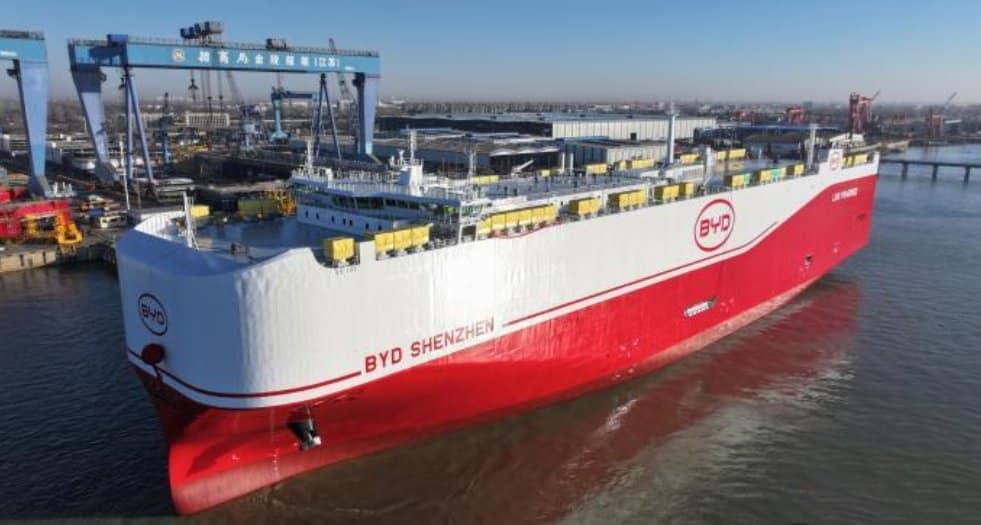
Recycling: closing the loop
The final stage of BYD’s value chain is battery recycling and reuse. BYD recovers valuable metals from old battery packs, reducing its need for new raw materials. It does so through partnerships with Chinese recycling firms and increasingly, through its own facilities.
This circular approach not only saves cost but also strengthens BYD’s ESG credentials — increasingly important for consumers and investors alike.

